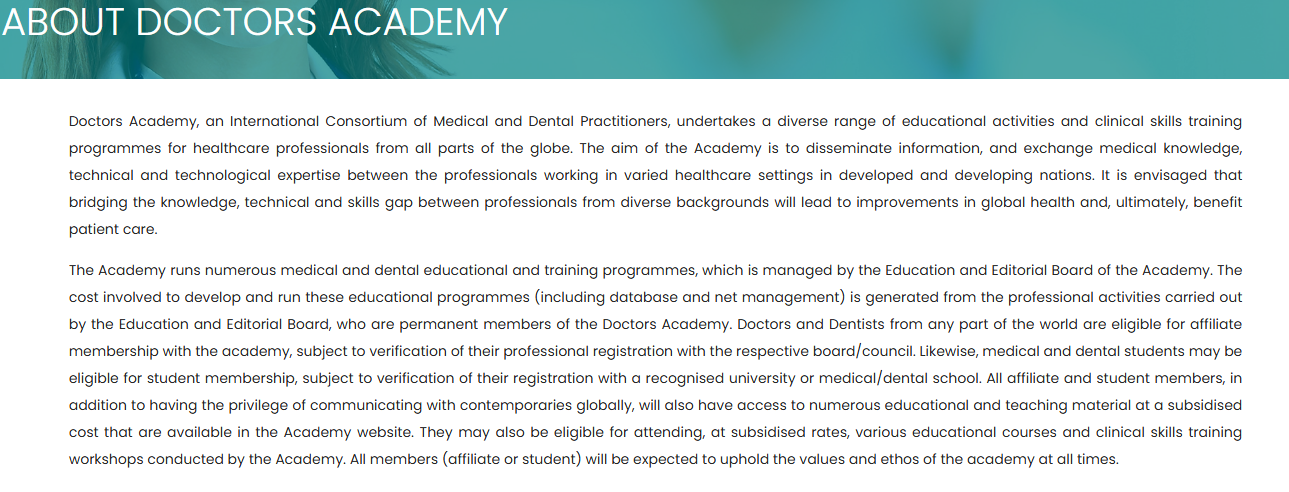This two-day intensive course is designed for International Medical Graduates preparing for the PLAB Part 2 examination. It is suitable for candidates with adequate medical knowledge who wish to brush-up on the method of practice in the United Kingdom. Candidates will be exposed to a variety of inte

This two-day intensive course is designed for International Medical Graduates preparing for the PLAB Part 2 examination. It is suitable for candidates with adequate medical knowledge who wish to brush-up on the method of practice in the United Kingdom. Candidates will be exposed to a variety of interactive sessions which will enable them to refine the professional values and behaviour which will be tested in the exam.
The course will provide candidates with an insight into how to gain marks in the core areas being tested in the exam: a) knowledge, skills and performance; b) safety and quality; c) communication, partnership, and teamwork; d) maintaining trust.
Candidates will have the opportunity to practice a number of procedures, skills and scenarios in order to enhance their competence in focused history-taking of common complaints, examination, management of common complaints and emergencies, clinical and procedural skills, and essential communication skills. There will also be a tailored feedback session.
The course is estimated to cover 70 hours of individual revision.
Topics Covered:
Day One will cover the following areas:
Core knowledge and understanding
Fundamental principles of investigations and management
Speciality and system specific topics
Part 1 of information giving, information gathering, and breaking bad news
Part 1 of clinical examinations
Topics covered on day one will include:
Essentials of history taking for common surgical, medical, obstetrics, gynaecological and paediatric complaints
Essentials of history taking for common psychiatric complaints
Management of common complaints and emergencies in surgery, medicine, obstetrics and gynaecology, paediatrics and psychiatry
Ethics of care in the United Kingdom
Essential communication skills
Day Two will cover the following aspects:
Part 2 of information giving, information gathering, and breaking bad news
Communicating with relatives and health care professionals
Giving instructions on discharge from hospital
Giving advice on lifestyle, health promotion or risk factors
Part 2 of clinical examinations
Clinical and procedural skills
Data interpretation
Topics covered on day two will include:
Essential communication skills
Essentials of basic life support
Procedural skills – urinary catheterisation; venepuncture and inserting a cannula into a peripheral vein; starting a line; giving intravenous injections; mixing and injecting drugs into an intravenous bag; giving intramuscular and subcutaneous injections; arterial blood gas sampling; vaginal examination; taking a cervical smear; digital rectal examination; suturing techniques; checking blood pressure; calculating drug dosage; basic cardio-pulmonary resuscitation (paediatric and adult); suturing; safe disposal of sharps
Interpreting an electrocardiogram (ECG), X-rays and basic respiratory function tests
Examination skills - knee, hip, shoulder, spine, skin and neck lumps, thyroid swellings, abdominal and scrotal examination, gravid uterus, mental state assessment, cardiorespiratory examination and examination of cranial nerves
About PLAB 2:
The Part 2 is tested by means of an Objective Structured Clinical Examination (OSCE), with the exam comprising 18 scenarios (8 minutes each). The candidate will be tested in settings such as a mock consultation or an acute ward. The topics in the test covers everything a UK trained doctor might expect to see on the first day of Foundation Year Two (FY2). It will test their ability to apply knowledge to the care of patients and all the questions relate to current best practice.
The following three areas or ‘Domains’ will be tested at each scenario in the test:
Domain 1 - Data gathering, technical and assessment skills: Covers history taking, physical examination, practical procedures, investigations leading to a diagnosis.
Domain 2 - Clinical management skills: Covers formulating a diagnosis, explaining something to the patient, formulating a management plan.
Domain 3 - Interpersonal skills: Covers how the candidate approaches the station: whether they establish a rapport with the patient, how they use open and closed questioning, involving the patient in the management and demonstrate their professionalism and understanding of ethical principles.
About Doctors Academy
Doctors Academy, an International Consortium of Medical and Dental Practitioners, undertakes a diverse range of educational activities and clinical skills training programmes for healthcare professionals from all parts of the globe.
The aim of the Academy is to disseminate information, and exchange medical knowledge, technical and technological expertise between the professionals working in varied healthcare settings in developed and developing nations.
It is envisaged that bridging the knowledge, technical and skills gap between professionals from diverse backgrounds will lead to improvements in global health and, ultimately, benefit patient care.
The Academy runs numerous medical and dental educational and training programmes, which is managed by the Education and Editorial Board of the Academy.
The cost involved to develop and run these educational programmes (including database and net management) is generated from the professional activities carried out by the Education and Editorial Board, who are permanent members of the Doctors Academy.
Doctors and Dentists from any part of the world are eligible for affiliate membership with the academy, subject to verification of their professional registration with the respective board/council. Likewise, medical and dental students may be eligible for student membership, subject to verification of their registration with a recognised university or medical/dental school.
All affiliate and student members, in addition to having the privilege of communicating with contemporaries globally, will also have access to numerous educational and teaching material at a subsidised cost that are available in the Academy website.
They may also be eligible for attending, at subsidised rates, various educational courses and clinical skills training workshops conducted by the Academy. All members (affiliate or student) will be expected to uphold the values and ethos of the academy at all times.
© 2025 coursetakers.com All Rights Reserved. Terms and Conditions of use | Privacy Policy